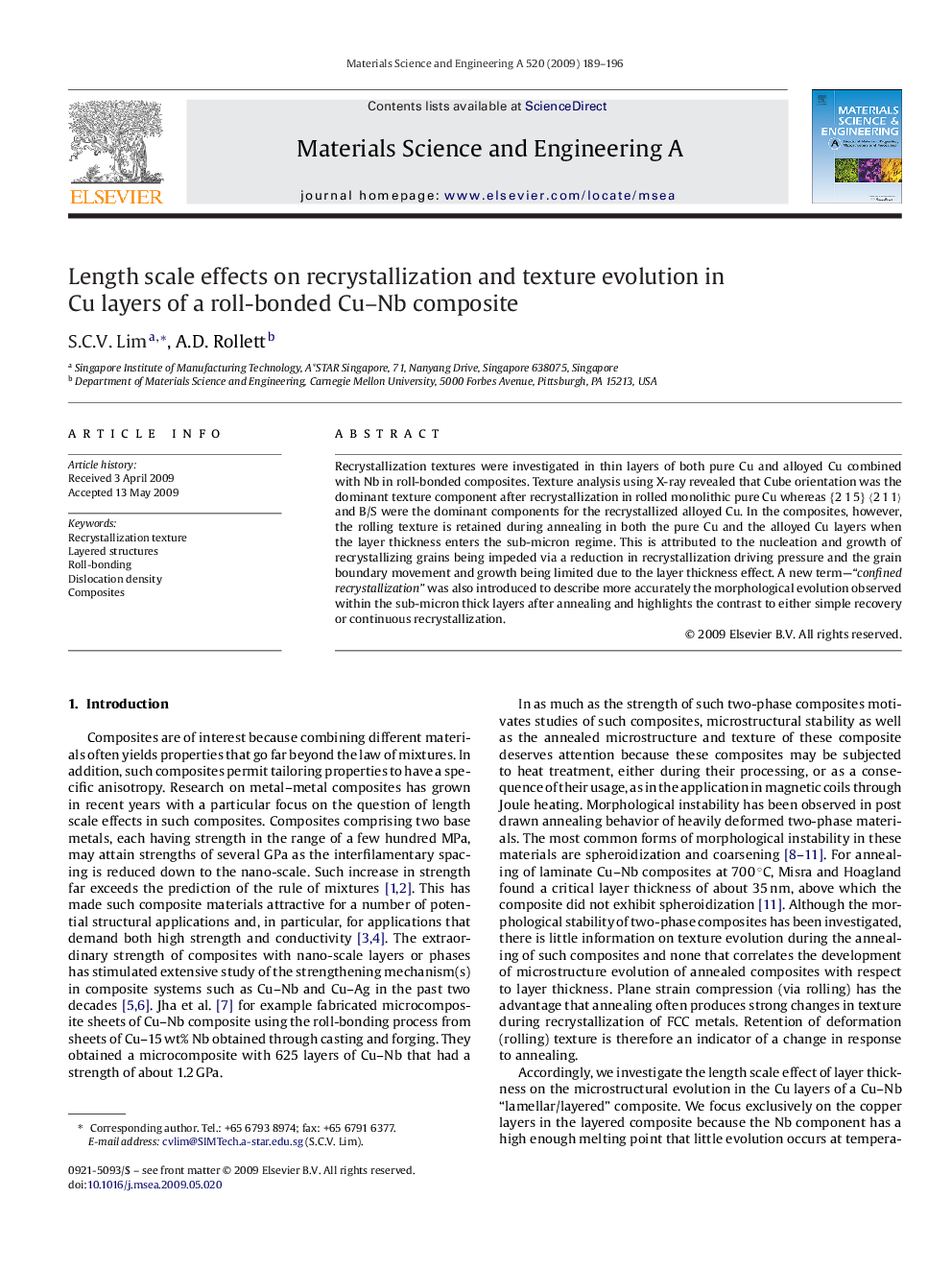| Article ID | Journal | Published Year | Pages | File Type |
|---|---|---|---|---|
| 1580713 | Materials Science and Engineering: A | 2009 | 8 Pages |
Abstract
Recrystallization textures were investigated in thin layers of both pure Cu and alloyed Cu combined with Nb in roll-bonded composites. Texture analysis using X-ray revealed that Cube orientation was the dominant texture component after recrystallization in rolled monolithic pure Cu whereas {2Â 1Â 5} ã2Â 1Â 1ã and B/S were the dominant components for the recrystallized alloyed Cu. In the composites, however, the rolling texture is retained during annealing in both the pure Cu and the alloyed Cu layers when the layer thickness enters the sub-micron regime. This is attributed to the nucleation and growth of recrystallizing grains being impeded via a reduction in recrystallization driving pressure and the grain boundary movement and growth being limited due to the layer thickness effect. A new term-“confined recrystallization” was also introduced to describe more accurately the morphological evolution observed within the sub-micron thick layers after annealing and highlights the contrast to either simple recovery or continuous recrystallization.
Related Topics
Physical Sciences and Engineering
Materials Science
Materials Science (General)
Authors
S.C.V. Lim, A.D. Rollett,
